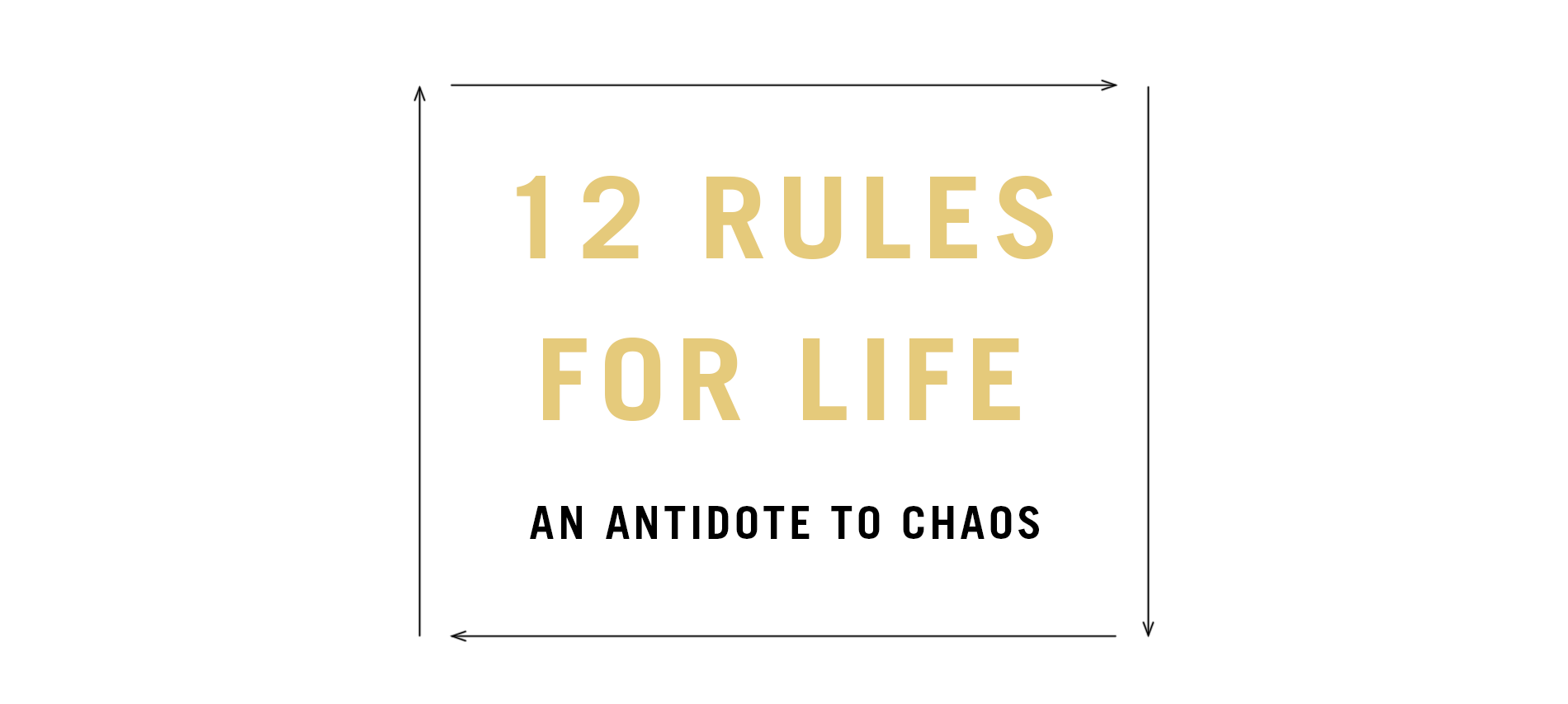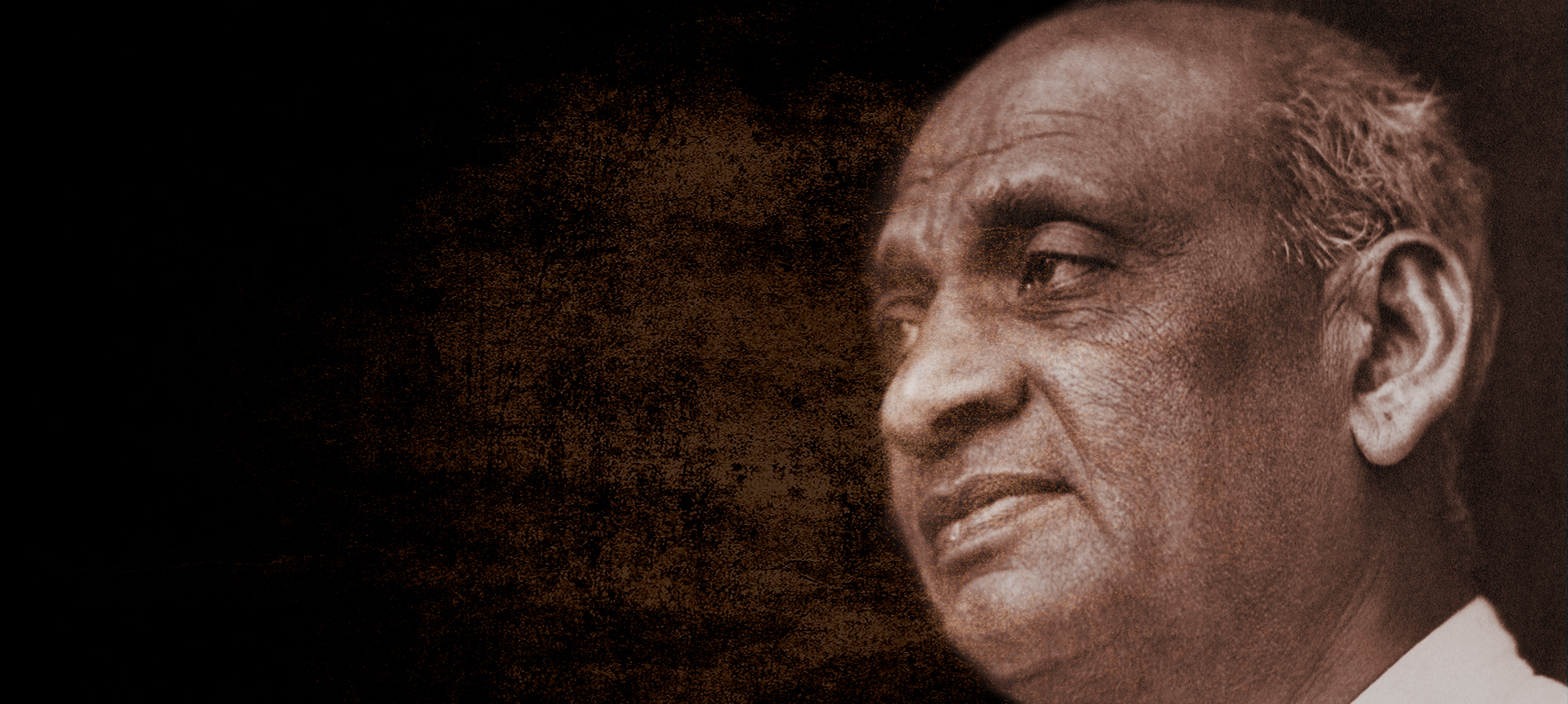Connie Glynn has always loved writing and wrote her first story when she was 6 with her mum at a typewriter acting as the scribe. It was at university that Connie started her hugely successful YouTube channel Noodlerella (named after her favourite food and favourite Disney princess). Her book, Undercover Princess is about a fairy tale obsessed Lottie Pumpkin who starting at the infamous Rosewood Hall, where she was not expecting to share a room with the Crown Princess of Maradova, Ellie Wolf. Lottie is thrust into the real world of royalty – a world filled with secrets, intrigue and betrayal.
Let’s read an excerpt from the book:
————————————————
Princess Eleanor Prudence Wolfson, sole heir of King Alexander Wolfson and next in line for the throne of Maradova, did not live in one of these spaces, nor was she one of these people, but she was in desperate need of both.
‘I am going to this school!’ Eleanor slammed the brochure on the table with a loud thwack, causing the cups of breakfast tea to wobble on top of their saucers.
Alexander Wolfson didn’t even look up from his newspaper to reply.
‘No,’ he said blankly.
‘I am next in line for the Maravish throne. I think the teeny-tiny decision of which school I attend is something I am capable of managing myself.’
Alexander looked up at his wife, Queen Matilde, who was sitting across the table from him.
She shrugged. ‘She does have a point, Alex,’ she said amiably, delicately dropping a lump of sugar into her teacup and stirring it slowly while stifling a smile.
This was not the parental solidarity King Alexander had been hoping for.
‘See?’ said Eleanor. ‘Even Mum agrees with me.’
Alexander remained firmly fixated on his newspaper, feigning an image of complete composure. He took a sip of tea.
‘ Edwina –’ he gestured to their maid – ‘would you kindly take the empty plates to the kitchen, please?’
‘Of course, Your Majesty.’ Edwina expertly stacked the crumb-covered trays and exited the dining hall with a skilled smoothness, her feet barely making a sound on the oak flooring. The large double doors closed behind her, creaking softly as she eased them shut.
Once Alexander was sure she was a reasonable distance down the hall, and safely away from any domestic outbursts, he looked back down at his newspaper and said, ‘My answer is no.’
Eleanor let out an exasperated screech and stamped her foot. ‘You could at least look at the brochure!’ she snapped, snatching the newspaper from her father’s fingertips.
Alexander was forced to look up at his daughter.
Eleanor had always been a challenging child. She was anything but a typical princess; she would take fiery political arguments and sneaking out to loud, rowdy concerts over mild polite conversation any day, and more than anything she despised elaborate formal functions – or at least she assumed she did, having refused to ever attend one. But she was smart, she was confident and she was passionate – and for Alexander that was all far more important than any of the traditional values expected of her. Although occasionally he did wish she’d watch her language around her grandparents.
As much as he wanted Eleanor to be happy and live a life free of the commitments of royalty, the fact remained that she would be queen one day and would eventually need to accept that responsibility. He was determined to find a way to make his daughter realize she could enjoy her royal obligations; something he’d had to learn himself when he was younger.
——–
‘What on earth are you wearing?’ Ollie’s sarcastic tone drifted into Lottie’s bedroom. He stood leaning against the door frame, his arms crossed as he watched Lottie pack up the last items in her room.
‘Ollie!’ Lottie’s hand rushed to her chest in shock at the sudden appearance of her best friend. ‘How did you get up here? And how many times do I have to tell you to knock?’ Lottie was huffing slightly from trying to squish down her suitcases. Ollie was fourteen, the same age as Lottie, yet even though he was taller than her he’d retained his baby face, which reminded her of soft-serve ice cream on the beach and other happy memories.
‘I had to sneak past the wicked witch. Did you know her skin’s turned green finally?’ Ollie said with a devilish smile.
Lottie giggled, but she couldn’t ignore his comment. She looked down at her outfit, brushing down her dress self- consciously. ‘And what exactly is wrong with my outfit?’ she said indignantly.
Ollie laughed, grinning at her with his signature cheeky smile. Clumps of dog hair dotted his jeans, a permanent feature that he never seemed to care about.
‘Isn’t it a little too fancy for the first day of school?’
‘Too fancy?!’ Lottie couldn’t believe he’d suggest something so ridiculous. ‘Nothing is too fancy for Rosewood Hall. I need to fit in. I can’t have my clothes making me an outcast on the first day.’
Lottie began picking at a non-existent spot on the collar of her dress. ‘Most of the students probably have their clothes tailor-made out of gold or something.’
Ollie casually strolled into the room, taking a seat on Lottie’s bed. He pursed his lips as he glanced around the bedroom. Usually so alive with Lottie’s special brand of handmade quirkiness, it was now stripped bare, everything she owned crammed into two pink suitcases.
‘Well,’ Ollie began, reaching into his pocket, ‘if you can take a moment off from worrying about what other people think of you . . .’ He pulled out a crumpled envelope and a worn-out Polaroid that Lottie recognized from his bedroom wall. ‘These are for you.’
Lottie reached out for them, but Ollie whipped his hand back.
‘You can’t open the letter until you’re on the train.’
Lottie nodded with an exasperated smile and he slowly placed both gifts in her hand. It was a photograph she’d seen thousands of times: the two of them at the beach, their noses covered in ice cream and beaming grins on both their greedy faces. Even though the colours had begun to fade to sepia, you could still see the tiara on Lottie’s head and the horns on Ollie’s. As children, the two had demanded to wear these fancy-dress items every day and everywhere. Ollie had declared he was the fairy Puck from Shakespeare’s A Midsummer Night’s Dream after they’d watched an open-air performance at the beach one evening. He’d been completely infatuated with all the mischief the character got away with and assumed he too could get away with being naughty so long as he was wearing his horns. Lottie’s tiara, on the other hand, had a less happy – go – lucky origin. Her thumb lingered over the accessory in the photo, a little pang striking her heart as she remembered the day she’d received it.
‘I’ll give you some time to say goodbye,’ he said, before effortlessly picking up both her suitcases and carrying them down the stairs to the car. When he was gone she thoughtfully placed Ollie’s gifts with the rest of her most important belongings, which she’d laid out on the now-bare bed so as not to forget them. She put each item into her handbag: first the weathered Polaroid and letter from Ollie, followed by her favourite sketchbook, her most loyal stuffed companion, Mr Truffles, a framed photo of her mother, Marguerite, in her graduation gown, and, finally – looking very out of place among the other objects – a crescent- moon tiara, her most valued possession. It had taken Lottie all of sixty minutes to pack her entire life into two pink suitcases, one denim backpack and a small over- shoulder handbag with a sturdy white strap. She looked over the now- empty room.
I did it, Mum, she thought. I got into Rosewood just like I promised.
Copyright © Connie Glynn, 2017

Tag: Book Excerpt
Will You Still Love Me, An Excerpt
Ravinder Singh is the bestselling author of I Too Had a Love Story, Can Love Happen Twice?, Like It Happened Yesterday, Your Dreams Are Mine Now and This Love That Feels Right . His new book, Will You Still Love Me is deeply moving, disturbingly close to reality, and love at its worst and its best.
Here’s an excerpt.
_______________________
Rajveer sat down on his seat and looked at her with newfound feelings. The spectacle of a sleeping beauty kindled a variety of emotions in his heart. Now that he could look at her without feeling self-conscious, Rajveer realized how attractive a woman Lavanya was! His eyes rested on the glowing skin of her face and her neck before they slid down to her waist, to the skin visible between the blouse and the long skirt she wore. He watched the rhythmic rise and fall of her chest as she slept. The tiny sleeves of her blouse clung to her elegantly shaped arms.
Rajveer took in the details of her beauty—her jet-black silky hair that lay softly on her shoulders, her not so long fingers that ended in shapely nails. She possessed a well-toned body many women only craved for. Lavanya wasn’t tall, yet her average frame possessed more than enough charm to be considered quite striking.
Then suddenly she turned her head in her sleep. It made Rajveer immediately retract his gaze. He thanked god that she hadn’t abruptly opened her eyes and caught him staring at her. He then looked around self-consciously to check if anybody else had noticed him doing so. He was safe, he realized.
To distract himself, Rajveer pulled out the Hello 6E from the seat pocket in front of him and began flipping through it. He occasionally checked on Lavanya too, who remained deep in sleep.
More than half an hour passed this way. By then, Rajveer had also pulled out his laptop from his luggage and had begun working on it. Just then he heard the captain’s voice letting passengers know that he had initiated the descent of the plane. This woke up Lavanya from her sleep.
‘Slept well?’ Rajveer asked. There was a sense of familiarity as he spoke and a certain softness.
She rubbed her palms over her face and then looked at him, ‘Yes. I feel so fresh now!’ She smiled.
Then reacting to the announcement that the use of lavatories was not allowed as they had begun descent, Lavanya quickly unbuckled her seat belt. She wanted to use the loo as soon as possible.
Caught by surprise, Rajveer had to quickly close his laptop, place the in-flight magazine on the middle seat, close the tray table, and then unbuckle himself, all in a rush. Lavanya didn’t have much time. She tried to manoeuvre through the narrow space between Rajveer’s legs and the seat in front. In the process, Rajveer’s knees rubbed against her skirt. Her touch and proximity felt like a jolt of electricity to him. Briefly he found himself staring straight at her bare, slender waist. Gosh! How much he wanted to feel that dewy skin on the tips of his fingers. He got a whiff of her perfume and he inadvertently took in a deep breath.
‘Sorry,’ Lavanya apologized for the discomfort to Rajveer. You are welcome, he said in his mind.

12 Rules For Life by Jordan B. Peterson – An Excerpt
Jordan B. Peterson is a professor of psychology at the University of Toronto. Formerly a professor at Harvard University, he was nominated for its prestigious Levenson Teaching Prize. In this book, 12 Rules For Life: An Antidote to Chaos, he combines ancient wisdom with decades of experience to provide twelve profound and challenging principles for how to live a meaningful life, from setting your house in order before criticising others to comparing yourself to who you were yesterday, not someone else today.
Let’s read an excerpt from this fascinating book.
———–
RULES? MORE RULES? REALLY? Isn’t life complicated enough, restricting enough, without abstract rules that don’t take our unique, individual situations into account? And given that our brains are plastic, and all develop differently based on our life experiences, why even expect that a few rules might be helpful to us all?
People don’t clamour for rules, even in the Bible . . . as when Moses comes down the mountain, after a long absence, bearing the tablets inscribed with ten commandments, and finds the Children of Israel in revelry. They’d been Pharaoh’s slaves and subject to his tyrannical regulations for four hundred years, and after that Moses subjected them to the harsh desert wilderness for another forty years, to purify them of their slavishness. Now, free at last, they are unbridled, and have lost all control as they dance wildly around an idol, a golden calf, displaying all manner of corporeal corruption.
“I’ve got some good news . . . and I’ve got some bad news,” the lawgiver yells to them. “Which do you want first?”
“The good news!” the hedonists reply.
“I got Him from fifteen commandments down to ten!”
“Hallelujah!” cries the unruly crowd. “And the bad?”
“Adultery is still in.”
So rules there will be—but, please, not too many. We are ambivalent about rules, even when we know they are good for us. If we are spirited souls, if we have character, rules seem restrictive, an affront to our sense of agency and our pride in working out our own lives. Why should we be judged according to another’s rule?
And judged we are. After all, God didn’t give Moses “The Ten Suggestions,” he gave Commandments; and if I’m a free agent, my first reaction to a command might just be that nobody, not even God, tells me what to do, even if it’s good for me. But the story of the golden calf also reminds us that without rules we quickly become slaves to our passions—and there’s nothing freeing about that.
And the story suggests something more: unchaperoned, and left to our own untutored judgment, we are quick to aim low and worship qualities that are beneath us—in this case, an artificial animal that brings out our own animal instincts in a completely unregulated way. The old Hebrew story makes it clear how the ancients felt about our prospects for civilized behaviour in the absence of rules that seek to elevate our gaze and raise our standards.
One neat thing about the Bible story is that it doesn’t simply list its rules, as lawyers or legislators or administrators might; it embeds them in a dramatic tale that illustrates why we need them, thereby making them easier to understand. Similarly, in this book Professor Peterson doesn’t just propose his twelve rules, he tells stories, too, bringing to bear his knowledge of many fields as he illustrates and explains why the best rules do not ultimately restrict us but instead facilitate our goals and make for fuller, freer lives…
Order is where the people around you act according to well understood social norms, and remain predictable and cooperative. It’s the world of social structure, explored territory, and familiarity. The state of Order is typically portrayed, symbolically—imaginatively—as masculine. It’s the Wise King and the Tyrant, forever bound together, as society is simultaneously structure and oppression.
Chaos, by contrast, is where—or when—something unexpected happens. Chaos emerges, in trivial form, when you tell a joke at a party with people you think you know and a silent and embarrassing chill falls over the gathering. Chaos is what emerges more catastrophically when you suddenly find yourself without employment, or are betrayed by a lover. As the antithesis of symbolically masculine order, it’s presented imaginatively as feminine. It’s the new and unpredictable suddenly emerging in the midst of the commonplace familiar. It’s Creation and Destruction, the source of new things and the destination of the dead (as nature, as opposed to culture, is simultaneously birth and demise).
Order and chaos are the yang and yin of the famous Taoist symbol: two serpents, head to tail.* Order is the white, masculine serpent; Chaos, its black, feminine counterpart. The black dot in the white— and the white in the black—indicate the possibility of transformation: just when things seem secure, the unknown can loom, unexpectedly and large. Conversely, just when everything seems lost, new order can emerge from catastrophe and chaos.
For the Taoists, meaning is to be found on the border between the ever-entwined pair. To walk that border is to stay on the path of life, the divine Way.
And that’s much better than happiness.
————-

The Diary of a Domestic Diva by Shilpa Shetty Kundra – An Excerpt
Shilpa Shetty Kundra is a renowned film and TV actor, businesswoman, author of The Great Indian Diet, entrepreneur and health enthusiast. She has always been a trendsetter, whether it be fashion or ideas. In her latest book, The Diary of a Domestic Diva, the actor and entrepreneur brings you fifty of her most special recipes-some of which feature in her popular Sunday Binge videos on Instagram.
Here’s an excerpt from the introduction to this book by Sanjeev Kapoor.
————-
What I like most about Shilpa’s approach to food is that it’s very honest. She belies the notion many of us have about stars: that they live by strict diets and don’t eat as they please. Shilpa, as you will discover through this book, is a dedicated foodie and loves to eat. I have known her for a long time now and I can tell you that she certainly knows when to stop eating too, one of the key factors in maintaining a healthy body weight.
The Diary of a Domestic Diva is straight from her kitchen and offers a mix of healthy recipes, favourite recipes, famous recipes with a twist and guilt-free desserts. The idea behind the book is very heartening. It features recipes that do not take much of your time and leave you free to do other things. Through this book, she touches upon a beautiful point: Women need not be tied to the kitchen stove all day. Give a woman nutritious and fast-to-cook recipes and she will have the time to step out to do what she pleases. It’s a cookbook with a message: Women ought to have some ‘me’ time. In my conversations with her, she has often mentioned the way, back in the day, her mother (a brilliant cook) would cook with the paucity of time as she was a working woman. I know it is all this that has led her to put together this book for the working woman. Being a family person, every aspect of her life draws from her experiences with people close to her. Her father’s love for food and yet his fitness is another inspiration that has worked so well for her. The recipes mentioned here have been tried out by her and I can vouch for their deliciousness. The fact that I drop everything when there’s an invite to her lovely ome for a meal is proof! The twists she adds to traditional recipes are delightful to say the least. The Diary of a Domestic Diva is about indulging your love for good food. And when such a message comes from one of the fittest people in town, you do sit up and take notice. Shilpa maintains that good food makes us happy and we shouldn’t feel guilty about something that makes us happy, and over the years this is something I have come to believe too.
With this sure-to-be-a-bestseller cookbook, Shilpa also enters the space of celebrity cooks and it delights the chef in me to see the world get so interested in food. It is indeed one more brownie point for the food industry.
—————

Coffee Can Investing The Low Risk Road to Stupendous Wealth – An Excerpt
Most people invest in the usual assets: real estate, gold, mutual funds, fixed deposits and stock markets. It’s always the same four or five instruments. All they end up making is a measly 8 to 12 per cent per annum. What if there was another way? In Coffee Can Investing, Saurabh will show you how to go about low-risk investments that generate great returns.
Here’s an excerpt from this book.
———–
“The ancient Romans were used to being defeated. Like the rulers of history’s great empires, they could lose battle after battle but still win the war. An empire that cannot sustain a blow and remain standing is not really an empire.” – Yuval Noah Harari, Sapiens: A Brief History of Humankind 18 (2011)
Many historians take the view that the “greatness” of a kingdom or an empire should be measured by its longevity. How long did the empire sustain? How durable was the empire? By this measure the first great empire was arguably the Persian Empire. Founded around 550 BC, it lasted for around 200 years until Alexander the Great brought it to an end in 330 BC by defeating King Darius III. However, if longevity is the measure of a great empire, then the Roman Empire is by some distance the greatest empire that the world has ever seen. Whilst the first Roman republic, headquartered in Rome, lasted from 100 BC to 400 AD, the imperial successor to the Republic lasted for a staggering 1400 years before falling to the Ottoman Turks in 1453. So ubiquitous is the influence of this empire, the language in which we are writing this book, the legal system which underpins the contract between the publisher and the authors of this book, the mathematical concept of compounding which underpins much of this book, all of them come more or less directly from the Roman Empire!
When it comes to investing in stock markets, greatness is defined as ‘the ability of a company to grow whilst sustaining its moats over long periods of time’. This then enables such great companies to sustain superior financial performance over several decades. The Coffee Can philosophy of investing is built using the twin filters to identify great companies that have the DNA to sustain their competitive advantages over 10-20 years (or longer). This is because ‘greatness’, which the coffee can portfolio seeks, is not temporary and it is surely not a short-term phenomenon. Greatness does not change from one quarterly result to another. In fact, great companies can endure difficult economic conditions.
Their growth is not beholden to domestic or global growth – they thrive in economic down cycles as well. Great companies do not get disrupted by evolution in their customers’ preferences or competitors or operational aspects of their business. Their management teams have strategies that deliver results better than their competition can. These great companies effectively separate themselves from competition using these strategies. Over time, they learn from their mistakes and increase the distance between themselves and their competition. Often, such companies appear conservative. However, they do not confuse conservatism with complacency – these companies simply bide their time for making the right moves. These traits are common among great companies and rarely found outside great companies.
——————-

The Diary of a Domestic Diva by Shilpa Shetty Kundra – Recipe Excerpt
Shilpa Shetty Kundra is a renowned film and TV actor, businesswoman, author of The Great Indian Diet, entrepreneur and health enthusiast. With Shilpa Shetty’s quick and hassle-free methods, The Diary of a Domestic Diva makes cooking good food easy. These favourites of the Shetty-Kundra household have been created to give you variety, taste and the occasional food coma.
Let’s read this recipe which will give us a peek into the world of the Domestic Diva!
————
Shilpa’s Treasure Pulao
This is a simple pulao recipe that I whip up when I am struggling to decide what to cook. It pairs well with cucumber raita, dal, chicken or any other curry. It’s a permanent fixture at all occasions, arties or pujas at my house and is always appreciated by guests.
Serves: 3
Nutritional value:
768 kcal (Carbs: 53 g,
Protein: 4 g, Fats: 60 g )
3 tbsp vegetable oil
1 big onion, julienned
1 bay leaf
3 star anise
2 black cardamoms
5 cloves
1 tsp coriander powder
1 tsp cumin powder
1 tbsp garam masala
Juice of ½ lemon
1 tsp salt
½ tsp cayenne pepper
½ tsp black pepper powder
½ cup fresh corn
1 tbsp ghee
1 cup basmati rice, washed and soaked for 15minutes
2 cups water
1 veg or chicken stock cube, soaked in 4 tbsp warm water
- Heat the vegetable oil in a wok on medium heat and fry the onions till they are golden brown. Next, add the bay leaf, star anise, black cardamoms and cloves. Mix well.
- Add the powdered spices and mix for a couple of minutes till they are fragrant.
- Add the corn, making sure it is partly cooked before you add the rice. You can also steam it separately if you want to save time.
- Mix in the ghee and the rice, along with water, vegetable stock and lemon juice. Cook for 15 minutes in a pressure cooker. If you want to cook it without pressure, then add 1¾ cup water. Season well and serve hot after removing the whole spices.
Variation: Check if the vegetable cubes are low in salt. Normally, stock cubes are pre-salted, so I hunt for the low-sodium ones. You can substitute corn with green peas or chicken. Nonvegetarians can substitute the vegetable stock cubes with chicken stock cubes.
——

The Black Economy in India by Arun Kumar – An Excerpt
Arun Kumar taught economics at the Centre for Economic Studies and Planning, Jawaharlal Nehru University, Delhi, till 2015. He has a master’s degree in physics from Delhi University and Princeton University, USA, and a doctorate in economics from JNU. A ground-breaking book, The Black Economy in India in India shows how demonetization is not the way to end the black economy, since what India needs is to empower citizens and make leaders accountable.
Here’s an excerpt from the Prologue.
—————
The black economy is once again in the news because of the announcement of demonetization of the large-denomination currency notes. It is not that this is the first step that the present government has taken to tackle the black economy. It started its journey by forming a special investigation team (SIT) under a Supreme Court order in 2014. It has got the approval for many bills, for example, on Benami Property, Black Money held abroad and Income Declaration Scheme. But none of them had the same dramatic impact on the economy since they were not comparable in order of magnitude that demonetization is.
The present move will not be able to tackle the black economy but has the potential to devastate the economy. The impact on the poor, the farmers, workers and producers in the unorganized sectors has already been severe. Thus, it is impacting those who never generated black incomes or held much of the high denomination currency notes. According to reports, much of the high-denomination notes issued by the RBI are coming back into the banks. The implication is that those who held substantial black cash have managed to exchange their old notes for new ones. Thus, the culprits who were supposed to be punished by the demonetization have escaped while the innocent have been trapped into standing in queues or by unemployment.
The prime minister promised normalization in fifty days but that cannot happen since so much currency cannot be printed in such a short time. Not only will the currency shortage continue due to insufficient printing capacity but those with black money are first replenishing their coffers causing a shortage of cash available to the public. Further, hoarding is going on. Thus, the economy would suffer for much longer and irreversibilities have already set in, pushing the economy towards a recession.
All this happening in the context of the black economy has again brought this topic to the centre stage. Public curiosity/ awareness of the issue has suddenly increased by leaps and bounds. It is in this context that this book with a new prologue is being issued at this juncture. The prologue discusses the different remedies to tackle the black economy that have been attempted by the present government. It must also be said that the theoretical framework of the book remains as valid today as it did in 1999. In fact, there is a section on demonetization in the book which had argued against taking such a step for precisely the reasons that are playing out today.
—————

Selected Speeches and Writings of Vallabhbhai Patel; An Excerpt
Vallabhbhai Patel, popularly known as Sardar Patel, was one of India’s towering leaders, whose contribution to the Indian Republic is immense. This book, Selected Speeches and Writings of Vallabhbhai Patel, showcases this great man’s commitment to develop this nation – his staunch belief in communal harmony, benefits of freedom for all citizens and in peace and cooperation between different regions.
Here’s an excerpt from the chapter, Build a Strong India Speech at Island Grounds.
————-
YOU WANT ME TO TALK TO YOU IN ENGLISH. I shall obey your command; but take it from me that it will not be long before you yourselves will have to speak in our national language. If you do not do that, you will drag the country backward. We have to exert our maximum effort to go forward. Unless you do that, I am afraid, you will suffer.
After a prolonged struggle the country has secured freedom, but it is not freedom of the kind that we wanted. It is not freedom of the kind that the deliverer of the country expected, and to our shame we have to confess that by our folly we have lost him. Now after his going we must do penance and try our best to deserve the freedom that he obtained for us.
Free India is only a child of a year and a half. It has yet to learn to walk; it has to grow, to be strong, and its future depends upon how we build today. Therefore, we have to nurse it carefully; we have to feed, clothe and strengthen it properly. It is our great good fortune that we have here a rare opportunity to build our own country in our own fashion. History will record what we are doing today.
The first requisite for building a strong, free India is unity and peace. If there is no unity in the country, it is bound to go down. Therefore, we must first of all adjust our differences and behave in such a manner that there is complete harmony and peace in the country. You cannot expect the Government continuously to maintain peace by force. It would be an evil day when in this country the Government has to use repressive measures permanently. Today we are passing through a period of crisis and our young men have, in their impatience, not realised that the freedom which has been obtained with great difficulty is likely to be lost or likely to give no benefit, no advantage, if we do not appreciate that our present duty is to unite and consolidate our freedom.
We lost our leader because we forgot the very first lesson. If we do not realise even after his going that in unity lies our strength, then greater misfortune will befall us.
For unity, we must forget differences of caste and creed and remember that we are all Indians, and all equal. There can be no distinction between man and man in a free country. All must have equal opportunities, equal rights and equal responsibilities. This is difficult for achievement in practice, but we must continuously strive towards that end.
There is one other thing that we have to do to maintain peace and order in this country. For a few years at least, till we are able to stand on our own legs, we must forget that we can every now and then threaten the Government. We cannot function if the Government is to be challenged day after day by groups of people who want to have their own way. What they want may be, according to their own honest thinking, very good; but Gandhiji has put before us the ideal of obtaining what we want by peaceful methods and through truth and non-violence. If people begin to threaten and challenge Government’s authority and try to overthrow it to gain their objectives by force, the latter would not be able to do anything constructive. Forces are existing in this country which would create chaos and disorder, which would weaken the country instead of strengthening it.
We in the Government have been dealing with the R.S.S. movement. They want that Hindu Rajya or Hindu culture should be imposed by force. No Government can tolerate this. There are almost as many Muslims in this country as in the part that has been partitioned away. We are not going to drive them away. It would be an evil day if we started that game, in spite of partition and whatever happens. We must understand that they are going to stay here and it is our obligation and our responsibility to make them feel that this is their country. It is, of course, their responsibility, on the other hand, to discharge their duties as citizens of this country.
We must all understand that partition is behind us. It has to come to stay. I honestly believe that it is good for both the new nations to be rid of a perpetual source of trouble and quarrels. In two hundred years of slavery, the administration created a situation in which we began to drift away from each other. It is good that we have agreed to partition in spite of all its evils; I have never repented my agreeing to partition. From the experience of one year of joint administration when we have not agreed to partition, I know we would have erred grievously and repented if we had not agreed. It would have resulted in a partition not into two countries but into several bits. Therefore, whatever some people may say, I am convinced and I remain convinced that our having agreed to partition has been for the good of the country.

Hinduism and Nature by Nanditha Krishna – An Excerpt
A historian, environmentalist and writer based in Chennai, Nanditha Krishna has a PhD in Ancient Indian Culture from Bombay University. Her latest book, Hinduism and Nature, delves into the religion’s deep respect for all life forms, the forests and trees, rivers and lakes, animals and mountains, which are all manifestations of divinity.
Let’s read an excerpt from this book.
————–
Forests have always been central to Indian civilization, representing the feminine principle in prakriti. They are the primary source of life and fertility, a refuge for the wanderer and a home for the seeker, and have always been viewed as a model for societal and civilizational evolution.
Forests were places of retreat, a source of inspiration, for all Vedic literature was revealed to the sages here. Rama’s entire journey from Ayodhya to Lanka was through forests. In the Mahabharata, the big war is for urbanization and to capture the cities of Mathura, Hastinapur and Indraprastha. Yet the Pandavas spent their years of exile in the forest and made marriage alliances with forest tribes, a move that would help them later in the Kurukshetra war. They also learnt several important lessons from living in the forest, which became a source of knowledge and a place for learning higher truths. There were several classifications of the forest. The ancient forests have survived as the sacred groves of modern India. The seals of the Indus civilization contain figures of wild animals such as the elephant, water buffalo, rhinoceros, deer, gazelle, antelope, wild sheep and goat and ibex and tiger, which means that the area was once covered with dense forests. Rhino habitat ranges from open savannah to dense forest, while tigers live in swamps, grasslands and among trees, bushes and tall grass which camouflage them. Elephants are found in savannah and forests, where they can find fresh water to cool their thick dark skins. The large number of such seals suggests that the Indus–Sarasvati region was once a thick forest, not the agricultural fields or deserts we see today.
The Vedas were composed in the Indus–Sarasvati region. In these texts, there is a fundamental sense of harmony with nature, which, in turn, nurtured a civilizational value. Forests were the primary source of life and inspiration, not a wilderness to be feared or conquered. The Vedas were written by sages living in the forest who saw it as a home and a source of revelation, exaltation and creativity. Some of the greatest verses of philosophy were written in forests. People drew intellectual, emotional and spiritual sustenance from the twin concepts of srishti and prakriti.
‘So may the mountains, the waters, the liberal (wives of the gods), the plants, also heaven and earth, consentient with the Forest Lord (Vanaspati) and both the heaven and earth preserve for us those riches’
One of the most beautiful hymns of the Rig Veda is dedicated to Aranyani, the goddess of the forest. She is an elusive spirit, fond of solitude, and fearless. The poet asks her to explain how she can wander so far from civilization without fear or loneliness. He creates a beautiful image of the village at sunset, with the sounds of the grasshopper and the cicada and the cowherd calling his cattle. She is a mysterious sprite, never seen, but her presence is felt by the tinkling of her anklets and her generosity in feeding both man and animal:
Aranyani Aranyani, who are, as it were, perishing there, why
do you not ask of the village? Does not fear assail you?
When the chichchika (bird) replies to the crying grasshopper,
Aranyani is exalted, resonant, as with cymbals.
It is as if cows were grazing, and it looks like a dwelling, and
Aranyani, at eventide, as it were, dismissed the wagons.
This man calls his cow, another cuts down the timber,
tarrying in the forest at eventide, one thinks there is a cry.
But Aranyani injures no one unless some other assails;
feeding upon the sweet fruit, she penetrates at will.
I praise the musk-scented, fragrant, fertile, uncultivated
Aranyani, the mother of wild animals
(Rig Veda, X.146. 1–6)

A Piece of Cake; An Excerpt
An alumna of Lady Shri Ram College, New Delhi, and an MBA from IIM Calcutta, Swati Kaushal is the bestselling author of five highly acclaimed novels. Her book, Piece of Cake, is a romantic comedy set in the corridors of corporate intrigue with a heroine and a plot sparkling with mischief and a ton of attitude
Here’s an excerpt from this ‘desi Bridget Jones’ novel.
———-
TGIwasF.
I’m not really your manicure-pedicure-facial kind of girl, but the past few days of sun and sand had been rather hard on the epidermis, and my face was ready to give up on me.
God bless the folks at Femina and their compulsive sampling; the ‘Mud spa treatment five-minute masque’ (with natural papaya, grapefruit and cucumber) that came with last month’s issue seemed just the thing. I smothered the pistachio green paste all over my face and neck and waited for ‘new and improved’ ancient science to work its wonders. An encouraging coolness spread across my features, followed by a promising firmness. No wonder women swore by the stuff; it sure beat sticking your head in the fridge and pulling at your cheeks, besides being a lot cheaper than a visit to a spa too! (I remember going to one of those beauty boutiques a couple of months ago with Radha; she’d paid five hundred rupees for one hour with the ‘special thermal pack’; a lava-like substance that had solidified in many crusty layers on her face and had come off whole, like a hollow Egyptian mummy.)
I studied my face in the mirror as I waited for the masque to do its stuff. A guy in Class 11 had once told me I was beautiful. I’m assuming it was hormones, or my Chemistry notes.
It’s not that I’m ugly; in fact I like most of the way I look. It’s just that I wish I didn’t have a big forehead, long nose and extra wide lips in that slightly non-Julia Roberts kind of way. And also my sideburns. I could definitely do without them. I turned my head sideways to check their current length, winced, and turned my head back around again.
At least I had good eyes. On the bigger side like everything else, but intelligent; and they looked especially arresting popping out from the green icing around them. And my eyebrows, and the way they never need threading; I especially like that. In fact not bad, all told, if only there were something I could do with the ears. I squeezed out the last of the green paste from the sample sachet and quickly covered them with it.
My ears are a social embarrassment and cause for deep personal anguish. I have no lobes.
I remember a visit to an ear-piercing salon, many years ago, when the entire staff had buzzed excitedly about my ears, in the manner of scientists around a rare specimen measuring and marking with special finely calibrated rulers to find a spot to pierce. In the end they’d recommended I forget the whole idea.
I’m assuming God used up so much material super-sizing the rest of me that he ran out of stuff to throw on the ears, so he just sort of wrapped up the job with comical miniatures, tucked them behind manly sideburns and hoped no one would notice. Of course, it didn’t work. People notice all the time; my ears are bigger draws than cleavage.
It wouldn’t be so bad if it were just a case of size and appearance. What really distresses me is that I am also tone-deaf. I love music, but my ears just don’t get it. Ever noticed how musicians tend to have nice, big ears with extra-large ear lobes that hang and quiver delicately at the ends, like they were specially designed to pick up variations on even a hundredth of a note? Well, mine have yet to acknowledge the differences between a do, re and mi and I have watched The Sound of Music a thousand times. And I’m sure things would have worked out with Rajiv, back in Class 12, if it hadn’t been for the time I got carried away and tried to sing ‘With a little help from my friends’ in his ear..

















